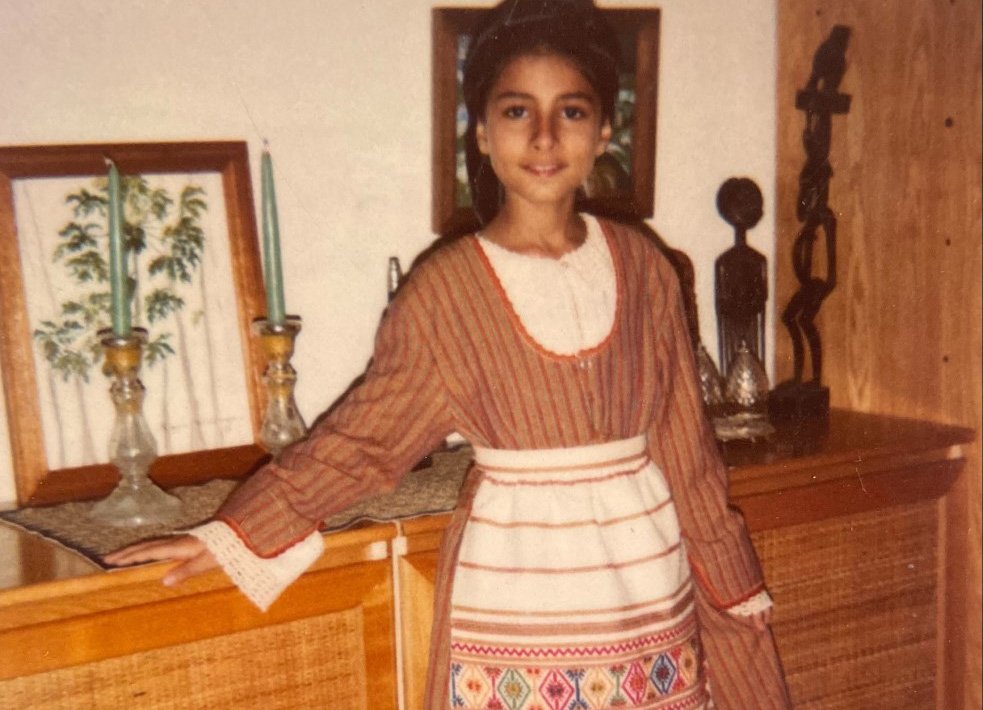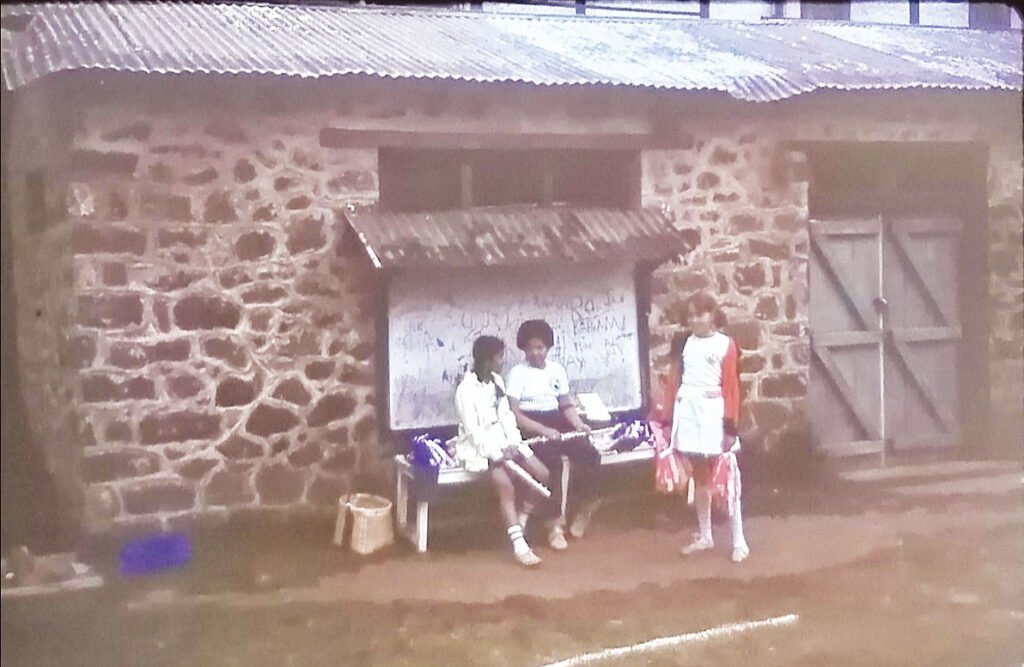Katarina Lazic and Sophia Papastavrou are international nomads and like all ‘third culture kids’ have found their native lands tough places to be
The British-Turkish novelist and academic Elif Shafak once wrote that one’s country of origin is like a castle made of glass; in order to leave it, we must break something – a wall, a social convention, a cultural norm, a heart. To this we add: a language and an identity.
Inter-cultural individuals, like the women in this story, know that each piece of the broken castle may not fit quite perfectly, but by putting them back together the Kintsugi way – the Japanese art of reassembling with gold – there emerges a stronger version of the object which embraces all its flaws and imperfections.
Sophia and Katarina met in Cyprus and connected over conversations about the usual challenges of living in countries all over the world and returning to countries which were their native lands, but to which they felt they did not fully belong. Despite their different journeys, Sophia and Katarina stumbled upon many similarities in their lives relating to their peripatetic experiences as children and adults. They shared accounts and anecdotes about the tangled complexities of living within diverse cultures and languages, the contrasting effects of these experiences and the sense of acquiring a fluid identity.
Two stories, one mindset.
Katarina was born in Zambia, and after eight years, moved with her family to India, and from there, returned to her parents’ homeland, which was then still known as Yugoslavia. Reminiscing about the impactful return to her native land that shaped her early teens, Katarina recalls, “I was 13 and my native tongue, at the time still known as Serbo-Croatian, was in a bit of a sorry state, despite my mother’s Herculean efforts to keep it alive throughout our years in Africa and India.” Her mother had taught her both alphabets – Cyrillic and Latin – which she practised mostly through weekly snail-mail. Katarina’s letters, like tapestries embroidered with ornate grammatical errors, would travel from her American International boarding school in the eucalyptus-scented hill stations of southern India to her parents, a couple of hundred miles away.
Settling into her new home in the Balkans, Katarina found out all too soon that the community in which she found herself was not particularly tolerant towards the native-tongue incompetence displayed by returning “third-culture kids”.” Moreover, her experiences in Zambia and India stood in stark contrast to those of her peers; thus the bonding with the country she belonged to by origin, therefore, did not go so smoothly.
Sophia was familiar with the experience of routes vs roots as she mapped out her own diasporic identity. Her roots were linked to her parents’ native land, Cyprus, along with her birthplace in Greece while her routes took her to the Dominican Republic, Ghana and Canada. “You don’t speak Greek?” people would ask her, “How is that possible? Your parents are Greek!” Sophia would explain that in Ghana, her father spoke predominantly in English while her mother kept the language alive to remind her of the family’s Greek roots. Alas, that was insufficient to achieve perfect fluency.
In Cyprus, the challenges continue. The feeling of fitting in is elusive while the struggle to speak and be spoken to in Greek is very real. For Katarina, it is many locals who revert to English as soon as she is detected as a foreigner. What is often perceived by the locals as a sweet offer to ‘help’ by switching to English, is, in fact, the closing of the door to the community.
For Sophia, Greek is supposed to be her native tongue which she ‘ought to know well’ and as she fumbles through it, she is acutely aware that, “I have an accent when I speak Greek. I confuse words and mix up tenses. I also speak with such furiousness and volume for fear of forgetting what I meant to say.”
“It is here where the real fun begins, and I mix both my native and dominant languages so that the person on the receiving end gets a buffet mix that leads them to switch to English or shake their heads in disappointment.”
Their experiences show that speaking a language well, especially your native language, plays a huge role in being accepted. However, both women strongly feel that belonging is a matter that cannot be reduced to a purely linguistic affair.
International nomads like Katarina and Sophia, constantly need to adapt to the environment they find themselves in, tweaking and adjusting their ways of being in order to fit in. Nonetheless, they remain on the periphery and find that they are most comfortable around people with similar experiences, regardless of whether they are in their homelands or in other countries of residence.
Home, community and identity for Katarina and Sophia sit between inherited histories and personal experiences. Home can be experienced as anywhere and nowhere at the same time. Identity, therefore, can be seen as ever-changing and fluid or a collage based on time and place composed of pieces gathered from personal narratives. A sense of hybridity is formed when cultures are combined, and new ones emerge with their countless advantages and confusing limitations.
These cultures merge yet again with new languages from new homes and old ones from the past, sculpting a new landscape of identity which the inter-culture individual has no choice but to embrace.
- Sophia Papastavrou, PhD is a technical specialist on gender for World Vision Canada and member of the Mediterranean Women’s Mediators Network living in Nicosia. Katarina Lazic, PhD, is a linguist living and working in Nicosia as an English teacher








Click here to change your cookie preferences